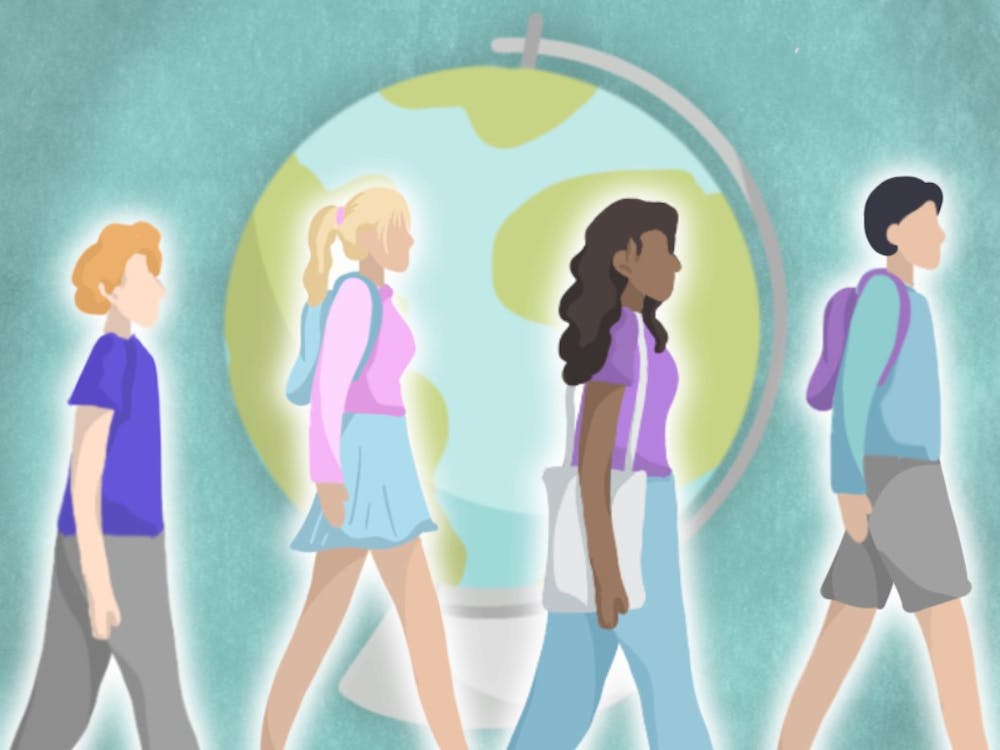Pla Navapan was confused the first time her Mississippi high school conducted a mass shooting drill.
Back home in Thailand, assault weapons are banned and there’s a limit on the amount of guns and ammunition that can be sold to civilians — though those regulations haven’t stopped major mass shootings in recent years.
“It shocked me,” the 21-year-old UF aerospace engineering student said. “This is something I would never expect from a place that should be safe.”
School shootings have become increasingly common in the U.S. over the last two decades, leaving many students to adapt to stricter safety measures in the classroom. However, the cycle of violence isn’t something many international students relate to back home.
Specifically at universities, where lives are meant to begin and students grow into who they’re meant to be, lives were extinguished before that chance.
In a November shooting, three students were killed at the University of Virginia. Around seven years prior, 10 students were killed at an Oregon community college. In the largest school shooting in American history, at Virginia Tech in 2007, 32 lives were ended by a fellow student.
For UF international students, the idea of being vigilant to the threat of shootings is a new experience, and definitely an unwelcome one.
Navapan has found herself hyper-aware of the average American’s accessibility to guns, she said. When she wants to yell at somebody for driving poorly around town, she has to stop and remind herself that they might have a gun in their car.
The idea of people owning guns to ensure their rights are protected from the government confuses her, she said.
“It shows some sort of failure [on the part of] the government because people don't trust them enough to have a system they can rely on,” Navapan said.
Kiara Xhindi, a 22-year-old biomedical engineering senior, came to UF from Albania. She didn’t even know guns were legal in the U.S. before she came here for her education, she said.
“Where I come from, if you hold a gun, you're another policeman or a criminal,” Xhindi said, with noted exceptions for some hunters.
When Xhindi thinks about whether she wants to stay in the U.S. after she graduates, the country’s gun culture makes her hesitant, she said. She’s not comfortable with the fact that anyone around her could be carrying a gun.
In Vlorë, the Albanian coastal town where Xhindi is from, she said she always felt safe walking the streets at night. She doesn’t feel the same way about Gainesville.
“My mother doesn't believe me because she thinks the U.S. is a much better place to be in,” Xhindi said. “I'm like, ‘Mom, I'm telling you it's so much safer in Albania.’ Because, of course, there are criminals. But unless you are involved in criminal activity, you're safe.”
Xhindi thinks there’s a high correlation between mass shootings and the normalization of guns in the home, which she said increases the opportunity for children to gain access. A major culture shock coming to the U.S. was the thought that a normal child could show up one day with a gun, she said.
Robert Rice, a 22-year-old UF data science and mathematics sophomore, grew up in Serbia and spent two years of secondary school in Germany before coming to the U.S. He can understand certain aspects of American gun culture when it comes to protection against government oppression, he said.
“If we look back in history, many times there is a system of oppression imposed on the people,” Rice said. “It wouldn't be avoidable if the people had guns and their own militia.”
He felt the country’s culture — which he believes is predicated on people having achieved either cutthroat success or suffering devastating downfall — and accessibility to guns is a bad combination, he said. While working at Walmart, which sells guns, Rice said he sometimes felt uneasy about the people he would encounter there.
“Working in Walmart, many times you see people, and looking at them in their eyes, you can sometimes see there's something homicidal about them,” Rice said. “One wrong word and it can be the end of you. That’s very unstable.”

Christian Casale is a history senior and the university desk editor for The Alligator. In his spare time, he loves writing his bio for the website and watching movies alone in the dark.






